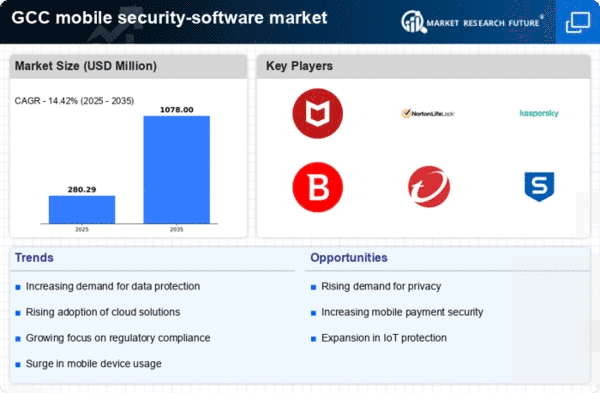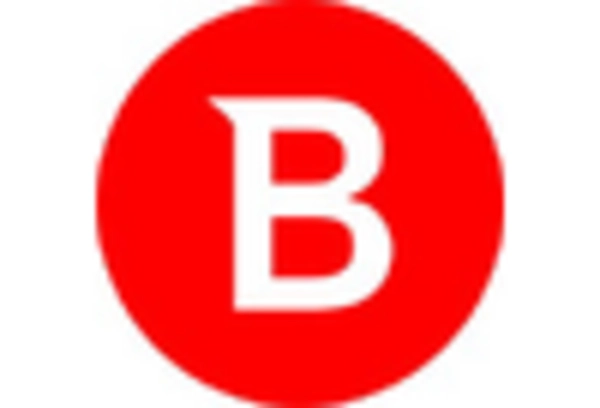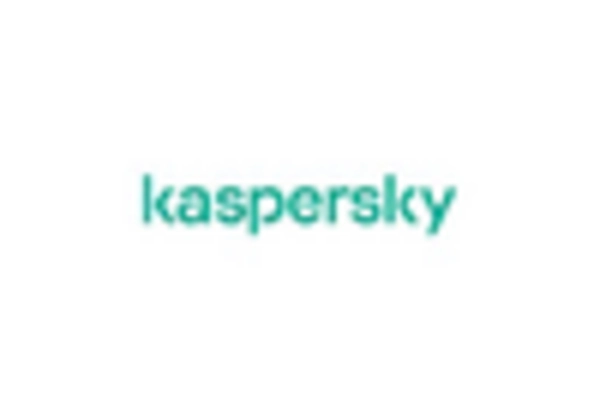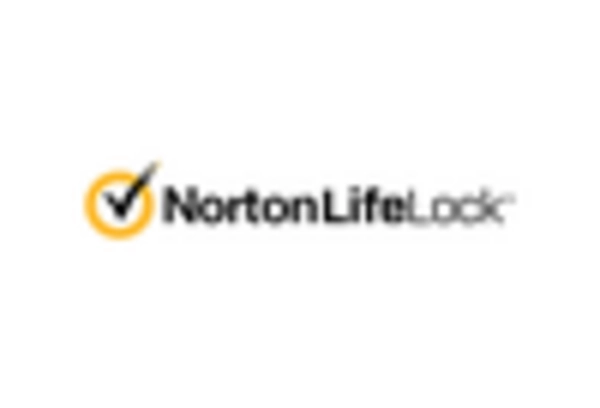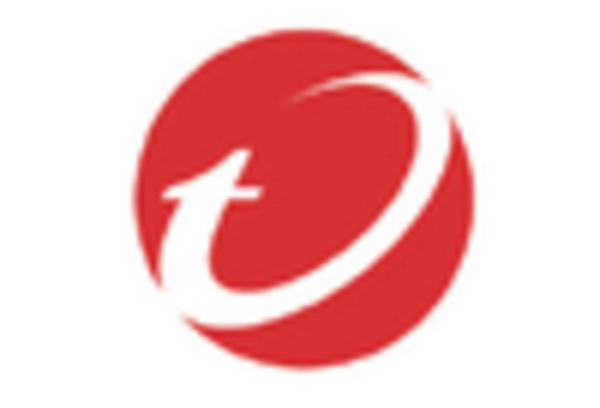Growing Mobile Workforce
The mobile security-software market is significantly influenced by the expansion of the mobile workforce in the GCC. As organizations increasingly adopt remote work policies, the reliance on mobile devices for business operations has escalated. This shift has led to a greater need for security solutions that can protect corporate data accessed through mobile platforms. Recent studies suggest that over 60% of employees in the region utilize mobile devices for work-related tasks, highlighting the vulnerability of sensitive information. Consequently, businesses are prioritizing mobile security software to ensure compliance with data protection regulations and to maintain operational integrity. The demand for solutions that can secure mobile endpoints is likely to drive growth in the mobile security-software market, as companies seek to enhance their cybersecurity posture.
Increasing Cyber Threats
The mobile security-software market is experiencing heightened demand due to the increasing frequency and sophistication of cyber threats. In the GCC region, cybercrime incidents have surged, with reports indicating a rise of over 30% in attacks targeting mobile devices. This alarming trend compels businesses and individuals to invest in robust security solutions to safeguard sensitive data. As mobile devices become primary tools for communication and transactions, the necessity for effective security measures intensifies. the mobile security-software market is positioned for growth as organizations seek to mitigate risks associated with data breaches and identity theft.. The urgency to protect personal and corporate information drives innovation and investment in security technologies, making it a critical driver for the market.
Regulatory Compliance Requirements
The mobile security-software market is also shaped by stringent regulatory compliance requirements in the GCC. Governments are increasingly implementing laws and regulations aimed at protecting consumer data and ensuring cybersecurity. For instance, the introduction of data protection laws mandates organizations to adopt adequate security measures for mobile devices. Failure to comply with these regulations can result in hefty fines and reputational damage. As a result, businesses are compelled to invest in mobile security solutions to meet compliance standards. The market is likely to see a surge in demand for software that not only protects data but also assists organizations in adhering to legal requirements. This regulatory landscape serves as a significant driver for the mobile security-software market, pushing companies to prioritize security investments.
Rising Awareness of Cybersecurity Risks
the mobile security-software market is growing due to the rising awareness of cybersecurity risks among consumers and businesses in the GCC.. Educational initiatives and high-profile data breaches have heightened public consciousness regarding the importance of mobile security. Surveys indicate that approximately 70% of consumers are now more concerned about their online safety than they were a few years ago. This shift in perception is prompting individuals and organizations to seek comprehensive security solutions to protect their mobile devices. As awareness continues to grow, the mobile security-software market is likely to see increased adoption rates, as users become more proactive in securing their digital assets. This heightened awareness serves as a crucial driver for the market, influencing purchasing decisions and investment in security technologies.
Technological Advancements in Security Solutions
The mobile security-software market is benefiting from rapid technological advancements that enhance security capabilities. Innovations such as artificial intelligence (AI) and machine learning (ML) are being integrated into mobile security solutions, enabling proactive threat detection and response. In the GCC, the adoption of these advanced technologies is expected to grow, with market analysts projecting a compound annual growth rate (CAGR) of 15% over the next five years. These advancements not only improve the effectiveness of security measures but also provide users with more intuitive and user-friendly interfaces. As organizations seek to leverage cutting-edge technology to protect their mobile environments, the mobile security-software market is likely to expand, driven by the demand for sophisticated security solutions.


